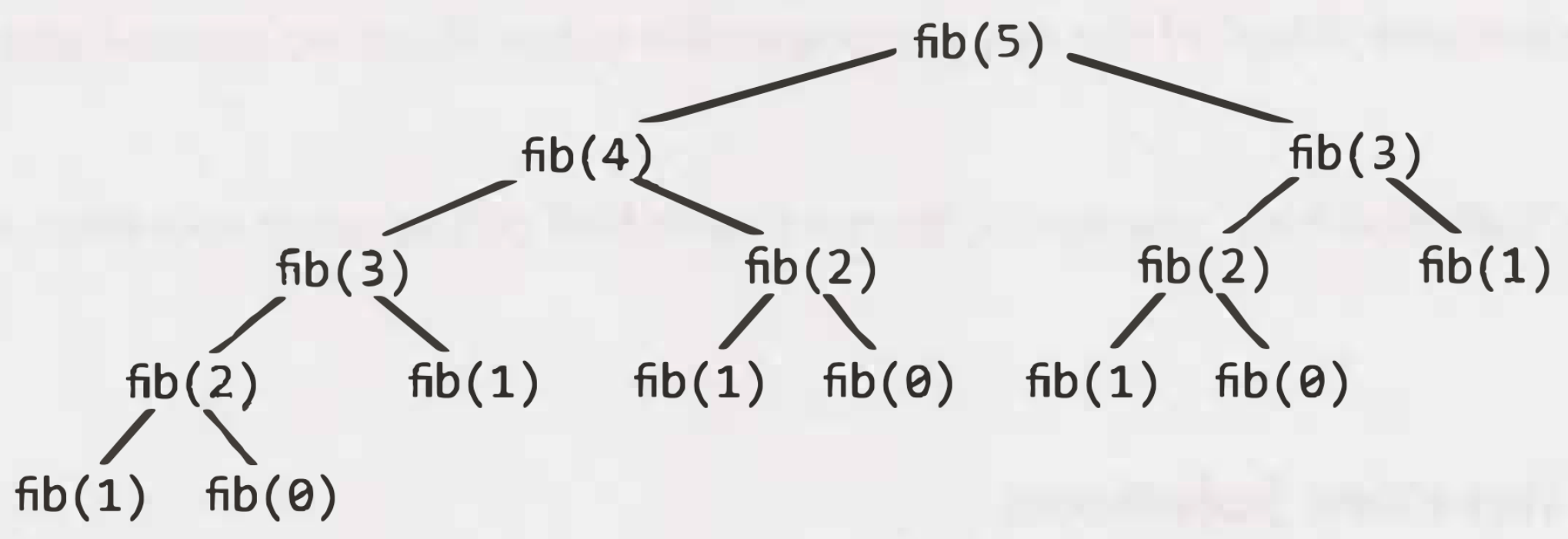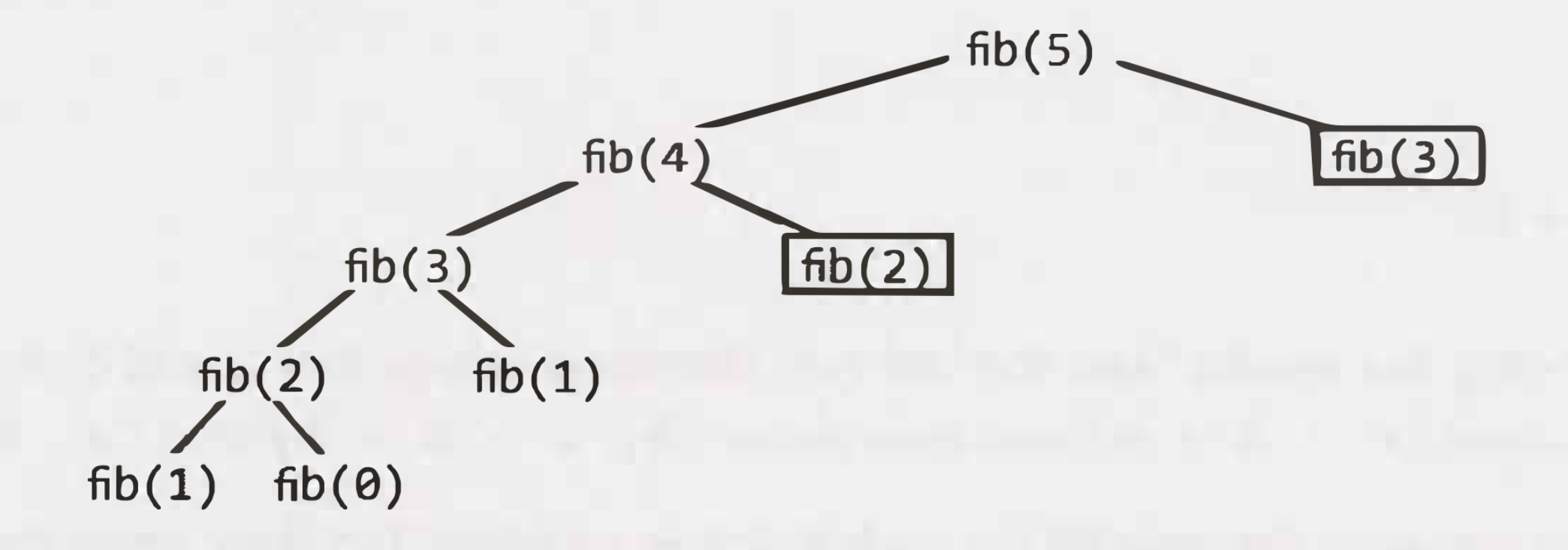Taking a recursive algorithm and finding the overlapping subproblems (repeated calls), then caching those results for future recursive calls.
Some people only refer to bottom-up DP as DP, and call top-down DP as memoization
The following implementation of Fibonacci is not the most efficient:
int fibonacci(int i) {
if (i == 0) return 0;
if (i == 1) return 1;
return fibonacci(i - 1) + fibonacci(i - 2);
} 
Roughly nodes, so the time complexity is
Top down approach (memoization)
int fibonacci(int n) {
return fibonacci(n, new int[n + 1]);
}
int fibonacci(int i, int[] memo) { # caching reduces repeated calls
if (i == 0 || i == 1)
return i;
if (memo[i] == 0) {
memo[i] = fibonacci(i - 1, memo) + fibonacci(i - 2, memo);
}
return memo[i];
}
The black boxes represent cached calls that returned immediately. They require no work.
By using memoization, we can reduce the runtime to , since there are roughly 2n children.
Bottom up approach (tabulation)
int fibonacci(int n) {
if (n == 0)
return 0;
else if (n == 1)
return 1;
int[] memo = new int[n];
memo[0] = 0;
memo[1] = 1;
for (int i = 2; i < n; i++) {
memo[i] = memo[i - 1] + memo[i - 2];
}
return memo[n - 1] + memo[n - 2];
}
We can get rid of the memo table b/c we only use memo[i] for memo[i+1] and memo[i+2]
At each iteration, we compute the next value (c = a + b) and then move (b, c = a + b) into (a, b).
int fibonacci(int n) {
if (n == 0)
return 0;
int a = 0;
int b = 1;
for (int i = 2; i < n; i++) {
int c = a + b;
a = b;
b = c;
}
return a + b;
}Example: climbing stairs
memoization
class Solution:
@cache
def climbStairs(self, n: int) -> int:
if n <= 2:
return n
return self.climbStairs(n-1)+ self.climbStairs(n-2)
class Solution:
def __init__(self):
self.memo = {}
def climbStairs(self, n: int) -> int:
if n in self.memo:
return self.memo[n]
if n <= 1:
return 1
self.memo[n] = self.climbStairs(n - 1) + self.climbStairs(n - 2)
return self.memo[n]class Solution:
def climbStairs(self, n: int) -> int:
memo = {1:1,2:2}
def f(n):
if n in memo:
return memo[n]
else:
memo[n] = f(n-1) + f(n-2)
return memo[n]
return f(n)
dp
class Solution:
def climbStairs(self, n: int) -> int:
if n <= 2:
return n
a=[1,2]
for i in range(2,n):
a.append(a[i-2] + a[i-1])
return a[-1]optimized dp
class Solution:
def climbStairs(self, n: int) -> int:
if n <= 2: # optional
return n
one, two = 1, 1
for i in range(n-1):
temp = one
one = one + two
two = temp
return onePractice
Classic problems
- knapsack
- subset sum
- longest increasing subsequence
- longest common subsequence
- longest palindromic subsequence
- longest path in a DAG
- count all possible paths in a matrix
- edit distance
- rod cutting
Types
- 1D
- Fibonacci
- max subarray (Kadane’s)
- 2D
- unique paths and grid traversal
- knapsack
- 0/1:
- target sum
- partition equal subset sum
- unbounded:
- coin change
- (fractional knapsack is greedy, not DP)
- 0/1:
- strings
- LCS
- palindromic substrings
- string segmentation
- LIS
- On trees